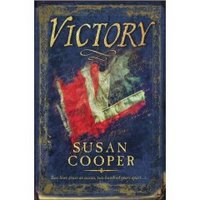I haven't hated a movie as much as I hated
Prometheus in a long time. It is a movie that screams for mockery.
Some of my favorite writings on it so far...
Nick Mamatas:In the grim meathook future of this film, corporations rule the planet, CEOs rule their corporations on whims, and women wear naught but Ace bandages as undergarments, the poor sexy sexy things.
Kameron Hurley:In the world of Prometheus, we all came from white dudes, who went around seeding the universe with their magical, life-giving sperm.
Genevieve Valentine:One of the saving graces of the psychosexual terrorization in the Alien franchise is the leveling of the gender playing field – the rape threat they represent is omnipresent and sexually indiscriminate. But not in Prometheus! Thanks, Prometheus.
Richard Brody:Which is to say that, despite the lack of intentional humor, lots of things in the movie are laughable, from the giant tiki-head of primordial power or the flying cruller that threatens humanity to the cumbersome pseudo-mythology that blends Sunday-supplement science with the kind of puffed-up archetypes of genesis that would have embarrassed Wagnerian epigones—and which Scott’s proud earnestness renders all the more ridiculous.
Also, the production design and cinematography are dull and repetitive, the plot is little more than a videogame script (and thus about as much fun as watching somebody else play a videogame), the characters are all idiots and stereotypes who spout pseudo-profundities they apparently picked up from Fortune Cookies of the Gods, and Guy Pearce is stuck in
Dustin Hoffman's Little Big Man make-up for no apparent reason. (I liked Michael Fassbender's performance, though. He seemed like a refugee from an incomparably better movie,
A.I.)(Even though the movie is ploddingly predictable, if you haven't seen it and want to predict every plot turn five minutes ahead of time yourself, don't read on.)
And let's not forget Charlize Theron as the Ball Busting Career Woman With Daddy Issues, Who Might Be A Lesbian — I mean, Robot — a character who finally gives in to the propositions of the Hunky Black Dude Who Will Make Her A Bit More Hetero — I mean, Human — Just Long Enough For Us To Imagine Them In Bed Together. It's not enou

OK, I posted my blog post on Sunday when I should have posted it today. This was pretty stupid as it means there will be no post today - except this one!
Being stupid is no barrier to success as a writer (luckily), as long as you are stupid in the right ways. So I thought I'd share some of the ways in which I am stupid that don't seem to have a detrimental effect on my career.
1. Counting double-page spreads. Now, this should be really easy. The number of working double-page spreads in a picture book or illustrated non-fiction book is simple to calculate if you know the page extent (usually 32 or 48pp) and what will go in the prelims/end matter. I have an 'A' level in maths - why am I perenially incapable of sending the right number of spreads? There's always one too many or one too few. My editors are very patient, so this hasn't done me any harm so far. I think it's a bit like not being able to tell left from right - it should be really easy, there are only two. But I just have a mental block about it (except when it relates to double-page spreads.... how strange - verso and recto are really easy to tell apart).
2. Leaving things until the very last minute. I know how long it takes to write a book, I know when the deadline is, I know I never miss deadlines - so why can't I ever start writing early enough to finish without a last-minute panic?
3. Being completely incapable of writing an outline (fiction) in advance of writing the book. If a publisher insists on an outline, I write the book first and then extract an outline. Then I pretend I haven't written the book and sit on it for months. (I do edit it a bit in that time :-) Once, I wrote the book, extracted the outline and the book was rejected because it was too similar to something else in the series. I had to write another book and do another outline...
4. Being too honest. As in 'Can you suggest some cover images for your book on XXX?' 'No, I know f*** all about XXX.' Or 'Can you write this series for me?' 'Yes, but it will be a bit late. My life is in ruins.' 'Your life is in ruins? Is there something I missed?' [For some reason, neither editor took the books away from me, so I am assuming this is not career-wrecking stupidity even though I would have assumed it should be.]
5. Being too informal. As in ''ere - have you read that story yet?' which is not the approved method of following up a submission.
6. Making stupidly bad decisions. As in, I have no time, no powers of concentration, too many other things to do, and am struggling to write anything - so why have I just agreed to do something insanely hard in a short space of time for practically no money? Because I can't turn down a challenge...
And, of course, there is having to write a second blog post when I have no time, no powers of concentration, bla bla...
Ways in which writers should not be stupid are many and varied and most have been treated at length in other places, particularly by my fellow stroppy/crabbit colleague Nicola Morgan at Help! I need a publisher. So if you are thinking of becoming stupid, take care picking the areas of stupidity you wish to explore.
I don't do a lot of announcing of traditional book award winners here because I have my doubts about whether there is any such thing as a best book. Each year there's a pool of really superior books in any particular field, and I wonder if one should be elevated above the rest. What do the awards mean? The criteria remain the same from year to year, but the judges change so those criteria aren't necessarily applied exactly the same way each year. On top of all that, some contests require an entry fee. The National Book Award, for instance, has a $125 entry fee. How many books will a publisher submit at $125 a pop? I learned this past year of a publisher that has a policy of not submitting books for awards with entry fees. (I wanted to ask if that included the National Book Award, but given the particular circumstances it might have been considered argumentative.) What if the best book of the year for a particular award was never even considered because it wasn't entered?
So, you see, I take the whole winning-book thing with a grain of salt.
However, I do like book awards that include a list of announced finalists because that means some of those books from that pool of superior books I was talking about earlier are brought to the public's attention. This is why I was so enthusiastic about the Cybils, by the way. While committee members creating the shortlist read nominated books, they could blog about them, promoting many titles.

This is all the lead in for how I came to finally read a book by Susan Cooper. You know, The Dark Is Rising Susan Cooper? Never read a word she'd written until her most recent book Victory was named a finalist for this year's Connecticut Book Award for Children's Author. I was writing a short overview of the finalists for a Connecticut publication, so I finally had to read a Cooper book.
I'm so glad I did.
The basic story behind Victory will be familiar to many adult readers. A contemporary person feels a strong personal connection to someone who lived long in the past. Cooper just does a great job with her version.
In this case, young Molly is an English girl who has moved to Connecticut with her mother who has married an American. This is no tale of a disfunctional family. Molly's stepfather is great. Her stepbrother is great. Her mother has a new baby who is great. Everyone loves Molly and wants the best for her. Nonetheless, she is suffering from the relocation. She just wants to go home.
She buys an old book on Lord Horatio Nelson who, evidently, to this day is a major hero/symbol in Billy Shakespeare country. And that is how she forms a connection with a boy who served on HMS Victory, Admiral Lord Nelson's flagship, the very one upon which he died during the Battle of Trafalgar.
These two children's stories are told in alternating chapters. Molly's is told in the present tense, which is nifty since it's taking place in the present. Sam's is told in the past, which is nifty for a similar reason. Molly's story is elegant. Sam's is richly detailed. I'm not much of an ocean-going sort, myself. When I visit Mystic Seaport (which plays a part in this book), those old boats seem like nothing so much as floating coffins to me. So little wonder I at first preferred Molly's story to Sam's as I read Victory. But about halfway through the book that changed. Cooper won me over, and I couldn't wait to get back to Sam.
As I was reading Victory, I wondered if it was a book for history geeks like myself who have either had our own experiences connecting with figures from the past or desperately want one. I don't think so.
If reading Victory makes you a bit of a Nelson groupy and you'd like to read a fine adult novel in which he plays a part, try Losing Nelson by Barry Unsworth.







Good. You've just saved me the price of a cinema ticket, which I can put towards the purchase of M John Harrison's new book.
You had me at your first sentence. As a writer, I am puzzled by why so many (not all) "fantasy" and "science fiction" writers seem to be able to imagine lots of tentacles and rays, but no new (or at least not yawningly old) perceptions of the sexes.
Sigh. Now that I've seen this much mockery of the movie, I feel kind of obligated to see it (even though nothing Scott or the Alien franchise has done in years has impressed me). This just sounds like it's mockable/MST3Kable on a Van Helsing level. That said, I certainly don't see any reason to not wait until it's on HBO.
I'm not sure any phrase could be more damning than, "an incomparably better movie, A.I."